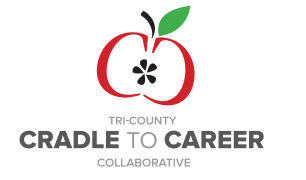Launching a CQI Process in Tri-County
“How can we build the capacity of direct service organizations in our community?”
This is the question that our partners at the Tri-County Cradle to Career Collaborative (TCCC) found themselves asking in early 2018. TCCC is a backbone organization in Charleston, SC, that acts as a convener for direct service organizations, school districts, and other civic and philanthropic organizations in the tri-county region. Their ultimate goal is to increase student success and economic prosperity across Berkeley, Dorchester, and Charleston counties. In order to do so, TCCC partners with direct service organizations to support children and families across the continuum from cradle to career. These partner organizations are often small, with passionate staff who wear multiple hats to provide several programs and services for families. However, limited resources often present a challenge for organizations to conduct deeper evaluation or improvement work beyond addressing the immediate needs of their communities.
Put simply, many of TCCC’s partner organizations don’t have the opportunity to stop and ask themselves, “Are our clients being served in the best possible way?”
As a convening organization, TCCC was drawn to the idea of using Continuous Quality Improvement (CQI) to strengthen the capacity of direct-service organizations that serve school-age children and their families. In January 2018, TCCC sought funding from the Duke Endowment to conduct research on how CQI might benefit the tri-county region. The Duke Endowment awarded TCCC a second grant to pilot CQI among organizations serving children up to age eight and their families. TCCC brought on Root Cause to facilitate this new CQI project, and we got to work cultivating the first TCCC CQI Initiative cohort.
Cultivating the CQI Cohort
The TCCC CQI Initiative is a 12-15-month opportunity for selected programs to receive individualized CQI coaching. In cultivating the cohort, TCCC and Root Cause recruited programs from all three counties to ensure diverse representation. We looked beyond the usual suspects and reached out to smaller organizations, as well as those that provide services not traditionally considered within the realm of early childhood education.
In recruiting programs to apply for the cohort, we looked for providers who met the following criteria:
● Direct service providers focused on children in the 0-5 age range or their parents
● Providers with a grassroots or community-based focus
● Providers that bring a strong equity and inclusivity lens to the work, including a focus on family-centered practices
● Providers that have an outcomes-based focus to their work (e.g. programs that target healthy births; on-track development, school readiness at kindergarten)
● Providers serving populations in the greatest need of services
● Providers from all three counties
Many programs we initially reached out to had never heard of CQI, while others had their own internal CQI processes, but had never practiced CQI with a dedicated coach. Through phone conversations and webinars for interested programs, we confirmed what we had suspected – many programs could significantly benefit from a dedicated improvement process, but had neither the resources nor capacity to begin implementing one.
In our next post, “Setting the stage for quality, learning, and improvement in Tri-County, SC”, we’ll share more about what engaging in a CQI process meant for selected programs, and how we set about defining what quality looks like in a direct-service organization.

